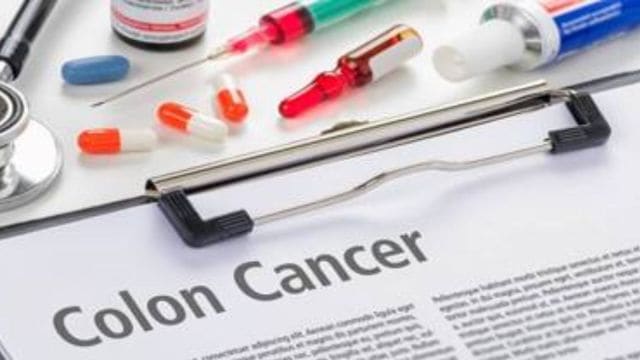Spot colorectal cancer early: What should young people look out for?
On National Cancer Awareness Day, don’t forget to run this checklist
 Colorectal cancer can begin with no warning signs or symptoms, especially during the earliest stages.
Colorectal cancer can begin with no warning signs or symptoms, especially during the earliest stages.There have been many myths around colorectal cancer, that it primarily affects the Western population and occurs among the elderly. But studies last year have shown that this cancer, which starts as growth in the rectum and colon, is affecting younger Indians between 31 and 40 years.
“Yet colorectal cancers are slow-growing tumours and are highly preventable if risk factors are avoided or the disease is detected and treated at an early stage, when they are localised to the bowel,” says Dr Vinay Samuel Gaikwad, director of Surgical Oncology at the Oncology Centre, CK Birla Hospital, Gurugram.
What is colorectal cancer?
The colon absorbs water and nutrients. The rectum stores waste prior to elimination. Abnormal cell growth is often seen in these areas as polyps, or small non-cancerous growths. Over time, these can become malignant if not detected and removed surgically.
Why are cases going up among young people?
Diet is the biggest risk factor, be it processed and ultra-processed foods, red meat, sugary drinks and low-fibre foods. “The young usually consume fast foods with processed ingredients. These promote inflammation and create conditions for abnormal tumours. A sedentary way of living from childhood and low exercise compromise gut health. Besides, obesity and Type 2 diabetes are developing early among young adults,” says Dr Gaikwad. Both obesity and diabetes change the metabolism, hormones and inflammation and eventually lead to cancer.
Some patients are predisposed by genetics, while recent research has identified environmental triggers like pollutants or chemicals used in food processing.
What are warning signs that young people should watch out for?
Colorectal cancer can begin with no warning signs or symptoms, especially during the earliest stages. “But watch out for changes in bowel habits such as prolonged diarrhoea, constipation, changes in stool consistency, or a feeling that the poop has not been evacuated. Watch out for rectal bleeding or blood in stool. Although bleeding could be symptomatic of haemorrhoids, get tested. Due to the high energy demands of cancer cells, one can lose weight, regardless of diet and exercise. So keep track of this risk factor. Usually, these symptoms are accompanied by abdominal pain or cramping, fullness, bloating, fatigue and anaemia,” explains Dr Gaikwad.
Unexplained jaundice or frequent nausea bouts could indicate that the cancer has spread to the liver.
What should be done for prevention?
Dr Raman Narang, medical and haematology-oncologist, Andromeda Cancer Hospital, advocates early screening. “Start at age 45, but those with a family history of either colorectal or other cancers should get tested earlier. Colonoscopies, stool tests and imaging tests can detect polyps or early-stage cancer,” he says.
He suggests a diet high in fruits, vegetables, legumes, whole grains, fibre and lean proteins for keeping your gut disease-free. “Maintaining a healthy digestive system and weight is difficult without physical activity. So exercise, limit alcohol and quit smoking,” he adds.



- 01
- 02
- 03
- 04
- 05




























